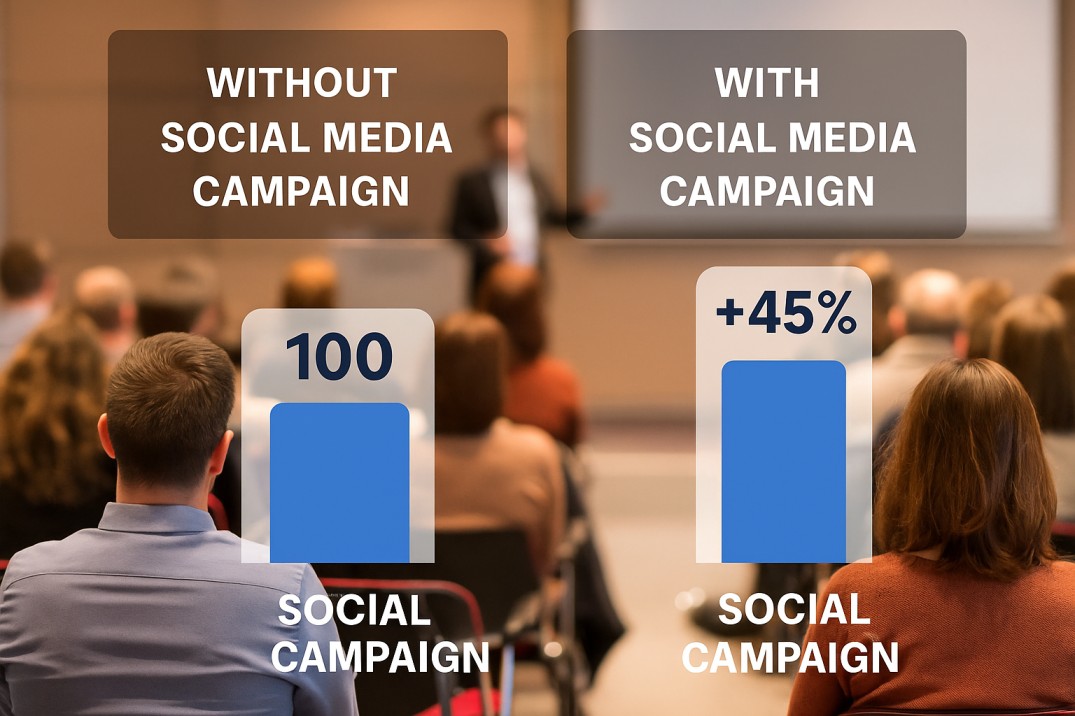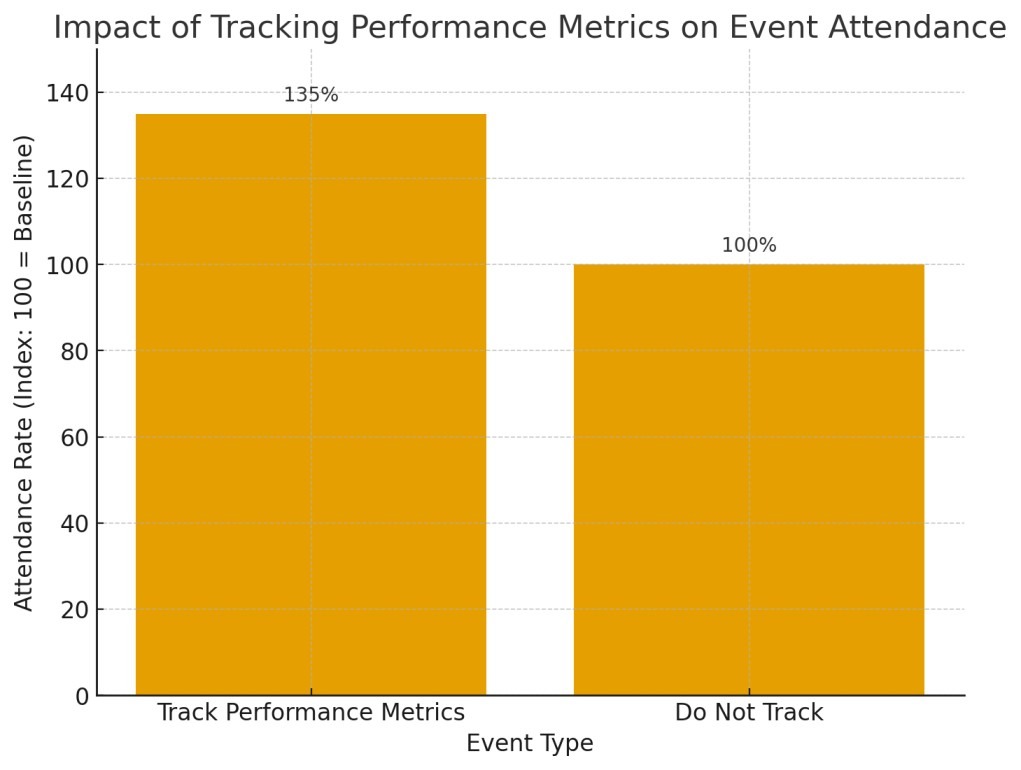Planning and executing a successful event requires more than just a venue, a date, and an invitation list. It demands careful strategy, consistent outreach, and the avoidance of common pitfalls that derail even the most exciting gatherings. In fact, the difference between an event that makes headlines and one that goes unnoticed often lies in how the event promotion process is handled.
In this article, we will dive deep into the mistakes that can sabotage your efforts. By identifying them early, you can save time, preserve your budget, and, most importantly, ensure your target audience shows up excited and engaged.
Why Event Promotion Matters?
Promotion is the engine that drives attendance. Without it, even the most brilliant keynote speakers, interactive panels, or stunning venues risk being underappreciated. Proper event promotion extends beyond sending out an email blast or posting a flyer. It is a multifaceted approach that combines timing, storytelling, audience targeting, and modern marketing techniques.
According to industry reports, nearly 40% of events fail to meet attendance goals, and poor promotion is often the leading culprit. This underscores the importance of making your promotional strategy watertight.
Mistake 1: Starting Promotion Too Late
One of the biggest blunders in event promotion is waiting until the last minute to spread the word. Your audience needs time to plan, budget, and get excited about your event. Promotion should begin weeks—or even months—before the big day.
When you start early, you build anticipation. You allow your intended audience to share details, generate buzz, and encourage word-of-mouth. Waiting until the eleventh hour almost guarantees poor turnout.
Mistake 2: Ignoring Your Target Audience
Another frequent issue is failing to define exactly who the event is for. A vague promotional campaign rarely captures attention. Effective event promotion requires tailoring your message to a specific audience.
For example, promoting a tech conference in generic terms like “innovative ideas for everyone” will never resonate as deeply as targeting phrases like “scaling cloud systems for CTOs.” Knowing your audience allows you to choose the right platforms—LinkedIn for professionals, Instagram for lifestyle-oriented crowds, or niche forums for specialized interests.
Mistake 3: Overlooking Social Media Engagement
In today’s world, ignoring social media is practically promotional malpractice. Social platforms not only amplify reach but also build real-time engagement. A stagnant account that posts a single event announcement won’t cut it.
Instead, successful event promotion involves countdowns, teaser videos, behind-the-scenes photos, and live Q&A sessions. Engagement is a two-way street. When potential attendees comment or ask questions, replying promptly demonstrates that the event organizers are responsive and invested.

Mistake 4: Neglecting Email Marketing
Email is still one of the most powerful tools in the event promotion arsenal, yet many organizers fail to use it strategically. Sending a single “save the date” message will not be enough.
An effective campaign includes segmented lists, personalized subject lines, and consistent reminders without becoming spammy. For example, speakers can be introduced one by one in a series of emails to build momentum. Each message should provide tangible value, such as early-bird discounts or insider tips related to the event theme.
Mistake 5: Poorly Designed Event Website or Landing Page
Your event’s landing page is the digital headquarters for all information. If it is cluttered, outdated, or confusing, your promotion suffers. A sleek and user-friendly page should highlight key details: date, location, agenda, pricing, and clear calls to action.
Effective event promotion also ensures the page is optimized for mobile since a majority of users access information from their phones. Adding testimonials, past event photos, and an FAQ section builds credibility and addresses common concerns.
Mistake 6: Failing to Use Analytics
Many event planners promote without tracking results. Without data, you cannot know what’s working and what’s not. Ignoring analytics is like driving blindfolded.
Google Analytics, social media insights, and email open rates are tools that reveal which channels deliver the most conversions. An advanced event promotion strategy constantly refines itself based on this feedback. If Facebook ads outperform LinkedIn posts, adjust accordingly.

Mistake 7: Forgetting Partnerships and Influencers
No event succeeds in a vacuum. Collaborating with sponsors, partners, and influencers expands your reach exponentially. A common mistake is assuming you must handle promotion alone.
By leveraging an influencer’s audience or a sponsor’s network, you tap into pre-built communities. These partnerships add credibility while amplifying your event promotion efforts. Ignoring these opportunities can mean leaving hundreds of potential attendees on the table.
Mistake 8: Over-Promising and Under-Delivering
Hype can backfire. Overselling an event creates high expectations, and if the experience doesn’t match, attendees will leave disappointed. Worse, negative word-of-mouth spreads quickly online.
An honest and clear event promotion campaign sets realistic expectations. Highlight what makes your event unique, but avoid exaggeration. A well-delivered modest promise beats a grandiose disappointment every time.
Mistake 9: Ignoring Post-Event Promotion
Many organizers stop promoting once the event begins, which is a missed opportunity. Post-event promotion strengthens your brand for future gatherings. Sharing highlights, testimonials, and recordings keeps your event alive long after the lights go out.
Effective event promotion is cyclical. Today’s recap content serves as tomorrow’s teaser for the next edition. This approach builds loyalty and sustains excitement year-round.
Mistake 10: Skipping Contingency Plans

Finally, some planners fail to account for hiccups. What if the speaker cancels? What if the venue experiences technical issues? Transparent communication through your promotional channels can turn potential disasters into opportunities to showcase professionalism.
An adaptable event promotion strategy ensures the audience stays informed and engaged, no matter the circumstances. Having backup plans in place demonstrates foresight and earns trust.
Final Thoughts
A poorly executed event promotion strategy can turn an otherwise brilliant occasion into a forgettable one. By avoiding these common mistakes—late promotion, unclear targeting, neglecting social channels, underutilizing email, weak landing pages, ignoring analytics, missing partnerships, overhyping, skipping post-event marketing, and overlooking contingencies—you safeguard your event’s potential.
Promotion isn’t an afterthought. It’s the foundation upon which success is built. The good news? By refining your strategy and sidestepping these errors, your next event can stand out, attract the right audience, and leave a lasting impact.
Andrea Balint is a writer and researcher focused on human behavior, workplace psychology, and personal growth. Through her work at CareersMomentum, she explores how mindset, leadership, and emotional intelligence shape modern careers. With a background in communication and HR development, she transforms complex ideas into practical insights that help readers build clarity, confidence, and professional purpose.
